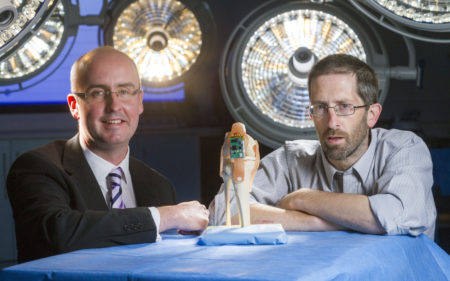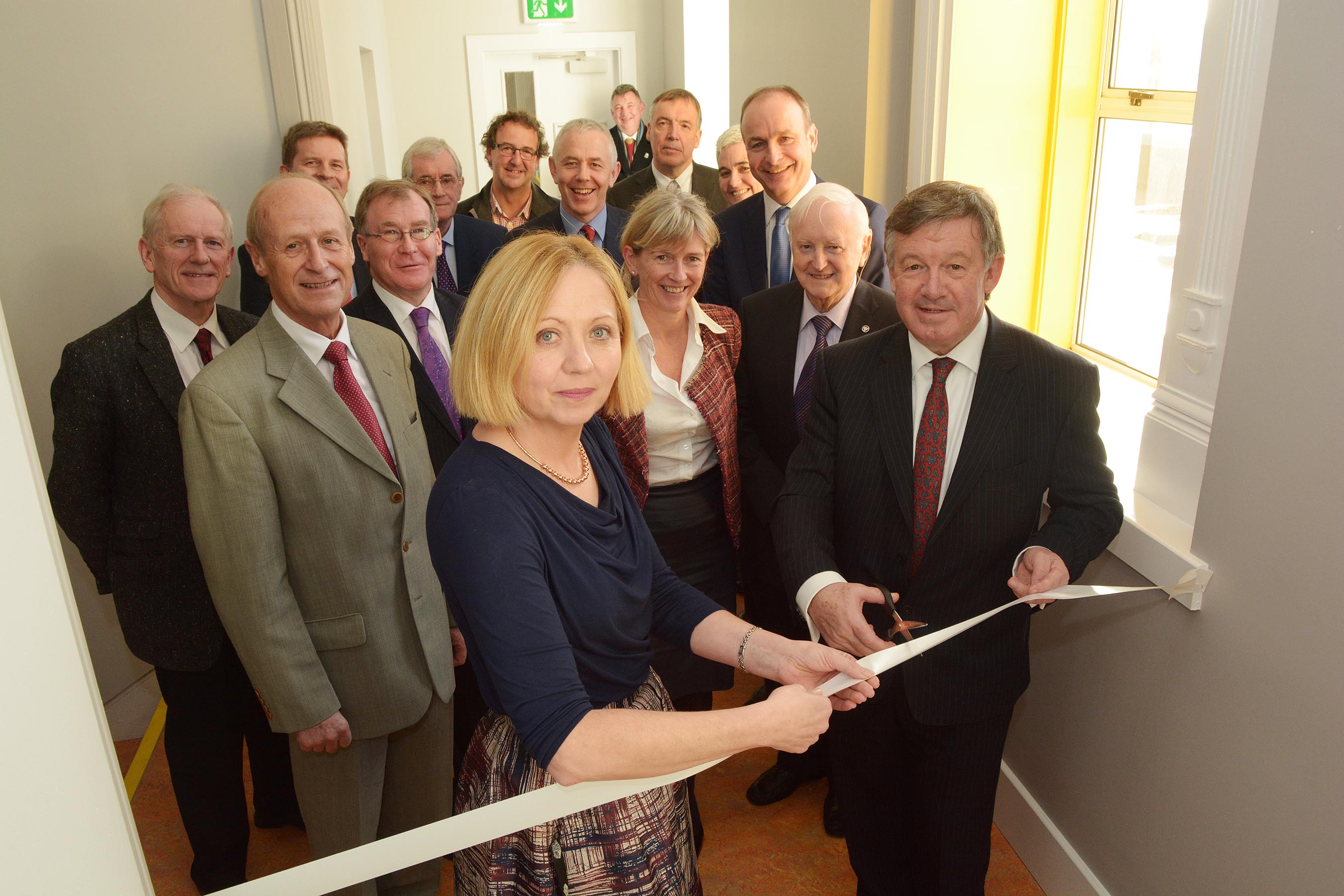19 December 2016
By Bryan T. Smyth
bryan@TheCork.ie
Recuperation from knee surgery, such as arthroscopy or knee replacement, can take some time, varying from three months to one year depending on the patient. A new ‘smart knee’ device could improve and accelerate recovery from knee surgery, thanks to scientists at Tyndall National Institute and German-Serbian software SME, Nissatech Innovation Center.
The intelligent device, which is attached to the knee during post-op care, is currently being trialled in a Budapest Hospital, and could be on the market in two years if clinicians and patients alike enjoy the benefits predicted by the scientists and their research in this area.
“Typically after knee surgeries, patients need to undergo a rehabilitation process to strengthen muscles and regain their mobility. Much of the post op exercises are expected to take place at home where they cannot be observed by medical staff,” explains Principal Investigator for the gateone project at Tyndall, Thomas Healy.
“The ‘smart knee’ system remotely monitors the patients progress, through a knee movement sensor developed at Tyndall National Institute, and based on the progress the patient makes, the rehabilitation program can be adapted and personalized to the patient. The sensor and the data provided to the physician is invaluable in the recovery process, which is the real value of the ‘smart knee’,” he added.
The ‘smart knee’ is just one of many innovations that is being shared with the international SME community through the gateone project. Encouraging small and medium sized businesses to take advantage of the world-class technologies, the EU funded gateone project is sharing a concept portfolio with SMEs across Europe and providing funding to help bridge the gap from R&D to market-ready products.
Tyndall selected four of its key technology platforms to be part of the gateone portfolio, including wearable technologies, micro-needle-based transdermal delivery systems, energy management systems and electrochemical sensors. The Smart Knee is the first Tyndall demonstrator through gateone to be provided to an SME for real environment trials and leverages work developed by Tyndall researcher Salvatore Tedesco in CONNECT, the Science Foundation Ireland Research Centre for Future Networks and Communications.

Thomas Healy, Commercial & Research Project Manager and John Barton, Staff Research Scientist at Tyndall National Institute, Cork showcase the ‘smart knee’ device which aims to improve and accelerate recovery from knee surgery. The intelli-device for patients, which is part of the gateone project bringing technologies together with SME community across the EU, is currently being trialled in a Budapest hospital.
Pic Daragh Mc Sweeney/Provision
Nenad Stojanovic, Nissatech CEO, says “We were looking for a wearable technology that could be integrated with our software and allow us to measure specific parameters of knee movement. In addition to those critical clinical measurements, the size, weight and battery life were important criteria and the Tyndall sensor ticked all the boxes for us.
This technology will enable us to easily create small but very illustrative prototypes which can demonstrate how our sensor-signal processing software can be used in different scenarios for monitoring human movement. The sensor technology can be physically placed on various body parts, opening plenty of possibilities for new monitoring scenarios.”
The EU Innovation Union Scoreboard 2016 has confirmed Ireland’s credentials as the ‘leader’ in innovation in small and medium sized companies. Tyndall is eager to continue this excellent performance and is calling on SMEs to take advantage of the opportunities presented through gateone, to continue to grow this sector of the economy.
Thomas Healy added, “At Tyndall we aim to deliver economic impact from our research and gateone’s concept is completely synchronous with this principle. By directly engaging with the SME community we are able to do this in a new and highly efficient way while shortening the time to market deployment. The project has the capacity to elevate Irish and European SME’s to the highest echelons of smart, business intuitive technologies.”
The gateone project is funded through the European Horizon 2020 plan, the largest European research fund of its kind, with a fund of €80 billion, financing EU research projects over 7 years.

